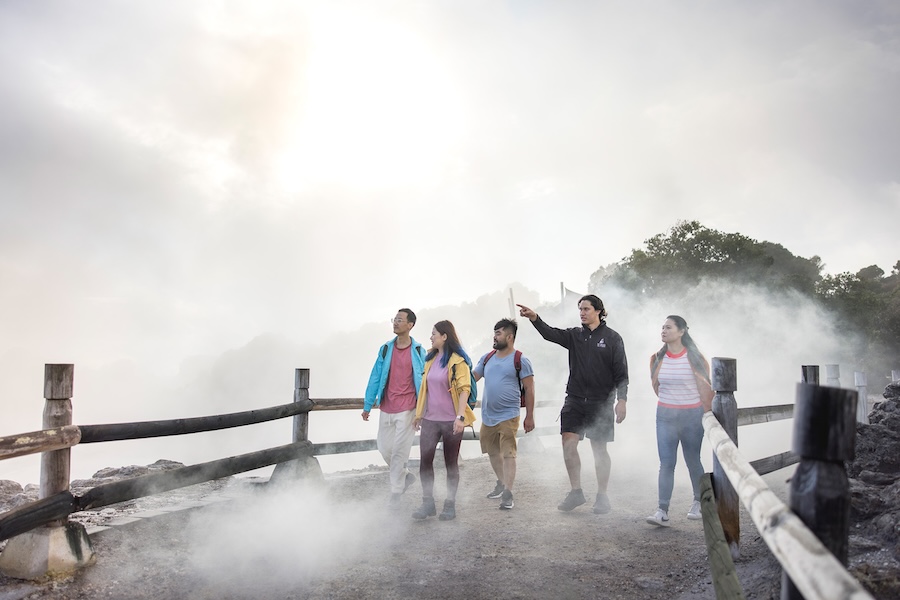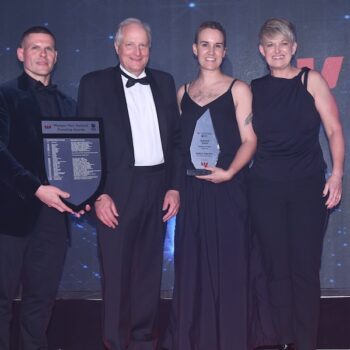Māori a major driving force for New Zealand economy
The thriving Māori economy and workforce are shaping New Zealand’s future, with professional development, leadership, and Māori values driving transformative opportunities across industries.
If New Zealand wants to find an area that’s key to unlocking huge potential economic growth, it need look no further than the Māori economy and workforce.
The 2023 census shows just under one million New Zealanders identifying as Māori, or 19.6 percent of the population. The Māori population grew nearly twice as fast as the population in general, with nearly 30 percent of New Zealanders under 25 identifying as Māori.
The fact Māori are becoming a larger proportion of the population – and therefore those entering the workforce – is something all businesses should be mindful of, and the smart move is to plan for this future.
Ringa Hora Services Workforce Development Council (WDC) supports the Services sector, which contributes more than $120 billion yearly to GDP. Within the Service sector are an estimated 130,000 Māori, including around 7,000 Māori-owned businesses contributing over $14 billion in GDP. This represents a significant pillar of New Zealand businesses and the future workforce, with the Māori economy valued at $70 billion in GDP.
With those numbers, it’s clear that when the Māori economy performs at a high level, so does New Zealand.
Fostering Māori businesses
Helping Māori businesses and workers is one of the major responsibilities of Ringa Hora, one of six industry-led WDCs, the qualification development bodies and skills leadership organisations established to ensure vocational education meets industry needs.
This came to the fore at Tuia 2024, the second annual event staged by Ringa Hora. The theme of Million Māori: Mobilising for our Mokopuna was to foster intergenerational success within the Māori business community. Tuia provided an opportunity to deep dive into the growing Māori economy through the experiences of speakers such as successful business leaders and entrepreneurs Tahana Tippett-Tapsell, General Manager at Tūaropaki Trust, Anton Matthews, Director of Hustle Group, and James Whetu, Director at Whetu Consultancy Group.
Insights included how iwi business models have grown their asset base to billion-dollar enterprises, how the collectivisation of businesses created the thriving Ngāruawāhia retail hub Durham Precinct, and how the inclusion of Te Ao Māori values and te reo Māori assisted the growth of hospitality business Hustle Group.
The insights and tools that equip Māori businesses also equip all businesses to deal with the changing demographics of Aotearoa and connect with customers across all generations.

Te Ao Māori in the economy
The changing population structure alone is enough reason to foster Māori business. Māori are innovating to meet the shift in consumer patterns while staying true to their mātāpono | Māori principles and uara | Māori values.
In addition, Te Ao Māori is central to New Zealand’s story and brand, with Māori businesses forging culturally authentic products and experiences that are popular within Aotearoa and internationally. Tourism is one industry where Māori naturally channel manaakitanga via person-to-person interactions and implement tiaki taiao in natural environment experiences.
There has been increased demand for authentic experiences, seeking genuine, high-quality storytelling that connects visitors with the land and its history. To meet this, tourism operators highlighted the need to build capability and attract the younger generation.
As a result, Ringa Hora developed a Storytelling skill standard in a guiding and tourism context, which was made available this year for training. This is a direct outcome of the Māori Tourism hui in 2023 and was developed with feedback from hundreds of industry members.
This credential allows trainees to skillfully impart authentic stories and transform a tourism experience into a journey through regional histories, enabling guests to connect with Māori and their relationship to whenua, moana, and the natural environment.
Leadership development
The increasing Māori population allows all industries and businesses to benefit from Māori values, approaches, and perspectives. Ensuring we incorporate Māori perspectives nationwide provides an opportunity to drive further growth in New Zealand’s productivity and positively impact businesses.
In mid-2023 Ringa Hora launched Te Manu Arataki Leadership Project to review and further understand industry needs for leadership and management qualifications and training. A concerted approach was taken to ensure insights were drawn from the rich traditions of leadership and governance within Te Ao Māori, offering valuable insights for everyone.
What was reinforced was the value of cultural sensitivity, the importance of collective and community-based leadership models, and how it was helpful for business leadership to be relevant to all employees, including Māori.
New leadership and management qualifications and standards are being developed which reflect these learnings.
Targeting Māori participation at an individual industry level
If Māori are not participating in an industry to a level that’s close to the overall population, the industry’s potential will not be realised.
One such industry is aviation, where Māori participation rates as pilots and engineers are low. To examine this, a Kaupapa Māori Aviation hui, a first of its kind for the aviation industry, was held on the home soil of Ngāti Kuku and Ngāi Tūkairangi hapū at Whareroa Marae in Tauranga earlier this year. Māori aviation business owners and employees attended, along with several non-Māori from major aviation employers. Attendees examined current challenges, and how to encourage more Māori into an industry that many haven’t necessarily seen themselves as participants in the past.
The insights from this hui have informed the Aviation Workforce Insights research, a collaborative piece of work by Ringa Hora and the Aviation Industry Association of New Zealand (AIANZ).
A transformational approach
Opportunities abound to boost New Zealand’s economy through fostering Māori businesses and workers. A collaborative, partnership-based approach can be applied across the economy, and the benefits to all are potentially transformational.
Ringa Hora is committed to Māori succeeding as Māori. To best foster this, a variety of initiatives have been taken to support participation and development of Māori success:
- He Rau Ranga Tira – a key document supporting WDC kaimahi | staff to give effect to Te Tiriti o Waitangi within its functional duties and responsibilities.
- Establishing principles and guidelines with Mātauranga Māori approaches that support all WDC kaimahi regardless of role. This includes guidance on engaging with Māori businesses, iwi, trainers, and learners to promote partnership and trust. It also includes ways to develop qualifications so that they are inclusive of learners who want to reference Mātauranga Māori within their training. This has wider benefits for all by ensuring qualifications meet different learner needs.
- Developing Mata Ārahi Manomano, a career pathway framework rooted in Te Ao Māori. When presented at this year’s CATE conference, several career pathways advisors requested training on implementation within high schools.
- Sharing Māori success stories to provide inspiration to the entire Service sector. Through our We Be Who We See project we collect artifacts that record how Māori are succeeding in different roles and industries, making those career options visible.
- The newly-developed Future of Service Skills credentials – which will also be available in te reo Māori – recognise transferrable skills such as customer service and communication. Within the Service sector, we see high churn between jobs and industries. Enabling transferability builds resilience, which benefits our people, businesses, industry and regions, and provides a foundation for skills for life.
These initiatives can be implemented by all industry members to support the continuous evolution of business growth and economic success in Aotearoa through workforce development.



